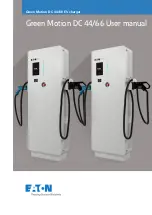
Limp Home Operation
In order to maintain the four wheel drive function for as long as possible even in the event
of important sensor signal failures or failure of the DSC control unit, a limp home control is
integrated in the transfer case control unit. This control operates in redundancy to the
transfer case clutch control in the DSC control unit. The limp home control contains only
two control functions, pre-control and traction-slip control.
The wheel speed signals are very important to traction/slip control. Engine signals,
steering angle and yaw are used predominantly for pre-control. If individual sensor sig-
nals fail, substitute values are calculated and the relevant functions operated with extend-
ed control thresholds.
This strategy is continued until useful four wheel drive control is no longer possible. In
this event, the driver is alerted by the DSC/xDrive lamp coming on in the instrument clus-
ter and also by an acoustic warning signal (gong).
Faulted wheel speed signals on the rear axle are calculated by driving or engine speed
(remember, the rear wheels are always driven). If the front wheel speed signals fail, the
values of the rear axle are adopted. Wheel speeds also substitute for a faulty steering
angle signal.
Note: On a vehicle equipped with an automatic transmission, when driving
onto brake analyzers, move the selector lever to the “N” position . On a
vehicle equipped with a manual transmission, do not press the accelera-
tor pedal once on the brake analyzer. This keeps the transfer case clutch
open and the vehicle cannot be pulled off the analyzer.
27
E61 Sports Wagon
















































